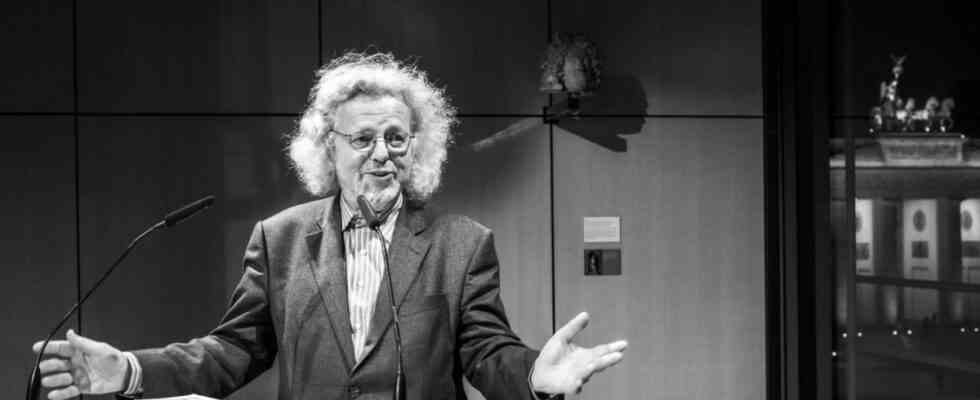Thomas Rosenlocher once described himself as a bearded man with “sparse, tangled hair”. In fact, it was his gaze that caught the eye: owlish, curious, questioning, there was also something mischievous about it. Thomas Rosenlocher was a poet who could draw landscapes with language. And at the same time, social conditions shine up again and again in his verses.
Dresden, the city where he was born, was not only his place of residence for many years, but also the vanishing point of “artistic practice”, as he called his poetry. Born in 1947, Rosenlocher initially remained true to the entrepreneurial line of the family and studied economics. But he soon changed his mind and went to the Johannes R. Becher Institute in Leipzig. Years at the Children’s and Youth Theater in Dresden followed before he was able to work as a freelance writer after the publication of his first volume of poetry in 1982.
“I lay in the garden near Kleinzschachwitz” was the title of this volume. And Rosenlocher has repeatedly brought similar concrete situations into his poems. “I’m sitting in Saxony and looking at the snow” was the title of a selection of 77 poems that made him better known in 1998, with a slight delay, even in reunified Germany. The cold of the snow – that has been the GDR since the mid-1970s, the book collects poems from his debut and from the volume “Schneebier” from 1988. Drinking in general: What initially sounds like harmless love for a holiday beer is actually one of Rosenlocher’s most important motifs, which he used again and again to give his verses a finely critical perspective on everyday life in the GDR: “We had to work all night / and drank in grumpy silence.”
He saw the cracks in the surface that had been so neatly and simply christened “Wende”.
He once noted that letting things become tangible in poetry is much more important to him than any message. And so one sees the poet standing on the edge of a field collecting observations for his reading audience. From the sea, from tree islands or from “grey goose flights”. But Rosenlocher’s picture of the landscape also includes “houses gray as the past / crouched against the cooling tower”. His art consisted in always bringing these moments of perception into a precisely balanced form. Odes, hymns or sonnets were just as easy for him as free rhythms.
Despite all this, the poems almost always have something pointed, and he not only sang about landscapes, but also about toothbrushes or other everyday objects. In the late 1960s, Hans Magnus Enzensberger wrote an ironic poem about “The Shit”, and ten years later Rosenlöcher tried it with the “Toilet Paper Roll”: “Since you are not given singing and your important role / is often kept secret, I sing, modest, you now. “
When he wasn’t writing verses, he wrote essays and notes, producing opinionated notes of his time. He called a diary in which he recorded the changes of 1989 and 1990 “The Sold Cobblestones”. He was still sitting in the Saxon snow and now saw above all the cracks in that supposedly white surface that had been so beautifully simply christened “Wende”.
In one of his most impressive poems, he has an angel count the war dead of the 20th century. It’s a fairly ordinary angel, with a “railwayman’s hat” that Rosenlocher might have worn himself: “He stands in the snow, where all trains end. / And counts the dead, which one, piece by piece, / carries past him , from left to right. // But at seven he doesn’t know what to do.”
On April 13, Thomas Rosenlocher died at the age of 74 in Kreischa, Saxony.

